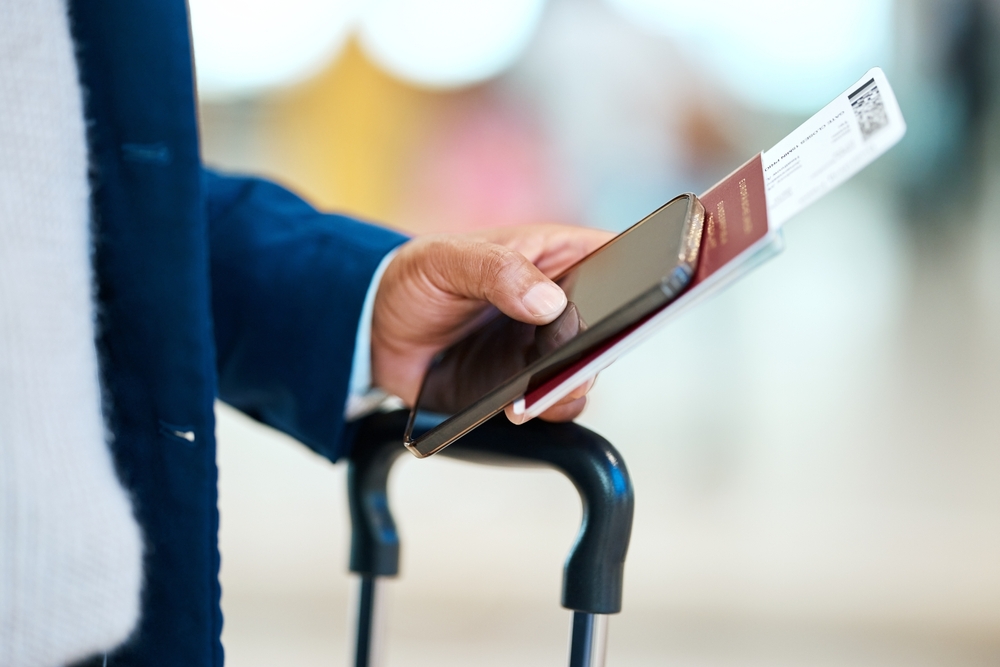Kevin Harrison, Managing Director, Good Travel Management looks at some of the biggest changes impacting business travel now and how to prepare for these challenges in the months ahead.
#1 The new digital ID
A new digital ID mobile-phone app was recently proposed, as pandemic travel revealed how technologically behind the UK is compared to other countries.
The UK’s Department for Science, Innovation and Technology is currently legislating for digital IDs, with the bill having already had its first reading in Parliament.
Travel experts predict this same technology will be used when moving through passport control and accessed via travellers’ mobiles. Passengers would check in remotely for flights and the identity of everyone instantly verified with face recognition software.
Remember, passport renewal should always be instigated by the individual so anyone prompting you or contacting you should be treated with utmost caution.
Will this help or hinder business travel?
A digital ID could allow for frictionless business travel, as the technology used would identify travellers at check-in, bag drop-off, security, passport control and the boarding gate, removing the need to show a ticket or passport.
This would significantly reduce waiting and queuing times in airports and allow for faster, more efficient travel all round.
#2 Travel inflation
Business travel airfare is on track to rise 44 percent – the largest increase since the 1980s – and hotel prices are up a massive 54 percent, as demand for travel returns.
Industry conferences have also made a comeback, but prices are on the rise and the costs per attendee for events could increase by as much as 25 percent.
Will this help or hinder business travel?
Of course, rising travel costs, will always be a challenge for businesses but there are several factors to consider which could help you reduce booking costs.
Planning, well enough in advance is essential to managing transport and accommodation expenses and negotiating rates and making use of reward schemes where possible is also key, especially if your company frequently stays at these places.
Most airlines, hotels, and car rental companies also offer reward schemes. So, make sure your company is collecting points and employees are using them when enough are collected.
#3 Passport fraud
Soaring passport wait times are around 10 weeks in addition to increased passport application fees. Scammers are taking advantage of the delays and strike disturbances by offering “fast-track” services to travellers.
These con artists send texts and emails offering quick passport renewals, meaning anyone who falls victim to these claims could hand over valuable personal data as well as lose money to fraud.
Will this help or hinder business travel?
The implications of losing valuable business data and funds through travel fraud could be disastrous, so it’s important we are vigilant and know the possible signs to spot.
When booking business travel, make sure you check the URL of any website, always read independent reviews and, of course, pay for your trips using a protected method like a business credit card or PayPal’s buyer protection service.
#4 Friday off-peak travel
London authorities are keen to encourage passengers to return to the public transport network in the same pre-pandemic numbers by reclassifying off-peak travel to include Fridays. The Transport Secretary is also investigating how national rail network ticketing could improve with return fares set to be eliminated.
Will this help or hinder business travel?
Replacing peak fares with cheaper off-peak fares and reducing the price of flexi-season tickets for rail commuters are just some of the ways business travellers could be given a better deal.
Making any travel fare cheaper will always be useful for businesses, and we may even see companies deliberately organising meetings or travel at the end of the week if significant reductions can be made.
#5 AI travel management companies
Expedia has already launched a trip-planning function in its app powered by ChatGPT and it is reported LLMs will soon write more coherently and be combined with other travel data sets, to strengthen results.
The quality of the output remains unknown, but the speed of adoption is remarkable and ChatGPT4 does give reasonable itinerary suggestions.
Will this help or hinder business travel?
Like other industries, fears have been raised that AI could make the role of travel management companies redundant. However, most commentators predict AI will not disrupt everything.
AI is only able to create content out of what already exists. It has no authority or ability to correct itself and no way to identify new, creative concepts. This suggests AI might make original travel planning more valuable.
However, travel businesses might consider whether these tools can help us do certain basic jobs better like research and or presentation planning.


